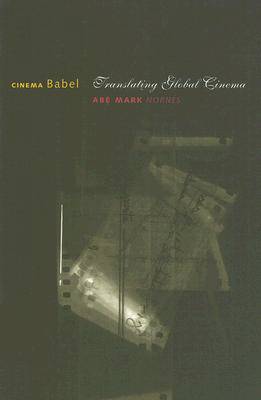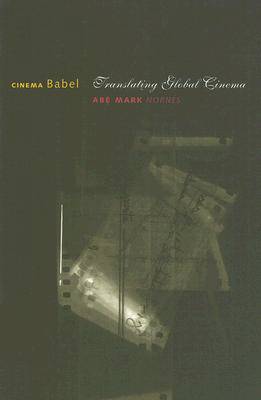
- Afhalen na 1 uur in een winkel met voorraad
- Gratis thuislevering in België vanaf € 30
- Ruim aanbod met 7 miljoen producten
- Afhalen na 1 uur in een winkel met voorraad
- Gratis thuislevering in België vanaf € 30
- Ruim aanbod met 7 miljoen producten
Omschrijving
The original foreign film-its sights and sounds-is available to all, but the viewer is utterly dependent on a translator and an untold number of technicians who produce the graphic text or disconnected speech through which we must approach the foreign film. A bad translation can ruin a film's beauty, muddy its plot, and turn any joke sour.
In this wide-ranging work, Abé Mark Nornes examines the relationships between moving-image media and translation and contends that film was a globalized medium from its beginning and that its transnational traffic has been greatly influenced by interpreters. He discusses the translation of film theory, interpretation at festivals and for coproductions, silent era practice, " talkies," subtitling, and dubbing.
Nornes-who has written subtitles for Japanese cinema-looks at the ways misprision of theory translations produced stylistic change, how silent era lecturers contributed to the construction of national cinemas, how subtitlers can learn from anime fans, and how ultimately interpreters can be, in his terms, "traders or traitors."
Abé Mark Nornes is associate professor of Asian languages and cultures and film and video studies at the University of Michigan. He is the author of Japanese Documentary Film (Minnesota, 2003) and Forest of Pressure (Minnesota, 2007).
Specificaties
Betrokkenen
- Auteur(s):
- Uitgeverij:
Inhoud
- Aantal bladzijden:
- 304
- Taal:
- Engels
Eigenschappen
- Productcode (EAN):
- 9780816650422
- Verschijningsdatum:
- 27/12/2007
- Uitvoering:
- Paperback
- Formaat:
- Trade paperback (VS)
- Afmetingen:
- 154 mm x 227 mm
- Gewicht:
- 399 g

Alleen bij Standaard Boekhandel
Beoordelingen
We publiceren alleen reviews die voldoen aan de voorwaarden voor reviews. Bekijk onze voorwaarden voor reviews.











